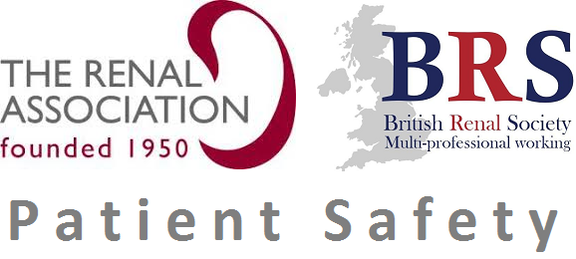Welcome to the official Association of Renal Technologists Training Scheme
The ART exists primarily to promote renal technology and support those working in this field. As such the ART Executive committee is committed to providing resources and helping to train new generations of renal technical staff. A dedicated panel to support the development and administration of a training scheme for technicians has been created, the ART Education Group (ARTED),with a remit to review, update and develop the previous training scheme. This process was completed in 2019 with the scheme officially launched at the ART annual conference.
The ART exists primarily to promote renal technology and support those working in this field. As such the ART Executive committee is committed to providing resources and helping to train new generations of renal technical staff. A dedicated panel to support the development and administration of a training scheme for technicians has been created, the ART Education Group (ARTED),with a remit to review, update and develop the previous training scheme. This process was completed in 2019 with the scheme officially launched at the ART annual conference.
The current ART ED panel are as follows-
- Stephen Palmer, Team Leader Renal Technicians, York Hospital - Assessor, APL panel member and Training Scheme lead.
- Kevin Gibbs, Systems Technician, Fresenius Medical Care – Assessor and APL panel member.
- Ian Wilde, Technical Service Manager (North), Fresenius Medical Care – Assessor and APL panel member.
- Peter Jones RCT, Technical Services Manager, Leeds Teaching Hospitals – Assessor and APL panel member.
- Drew Blackmore, Clinical Technologist, Guy's and St Thomas' NHS Foundation Trust - Assessor and APL panel member.
- Dr. David Keane, Clinical Scientist, Leeds Teaching Hospitals (ART President) – Bradford University link.
The scheme itself sets out a syllabus of learning split into two parts...
Part A: sets out the underpinning knowledge for candidates to work through with their nominated mentor. The candidate’s knowledge and understanding will be tested within the department by the completion of a set number of assessments covering each of the sections, which will then be submitted to the nominated assessor within the ART ED group.
Part A is also designed to provide candidates with the underpinning knowledge required to begin studies on the two renal specific modules of the BSC (Hons) in Clinical Technology provided by the University of Bradford. It is therefore recommended that the candidate completes Part A before starting the Bradford modules.
Part B: sets out a range of practical competencies which candidates must acquire and then demonstrated to their mentor. These are then recorded in a logbook of activity; this is to be submitted to the ART ED group for assessment. Candidates who feel they have already acquired some relevant experience and competence in previous job roles can submit this for accreditation of prior learning. This will be assessed by the ART ED APL assessors.
Part A: sets out the underpinning knowledge for candidates to work through with their nominated mentor. The candidate’s knowledge and understanding will be tested within the department by the completion of a set number of assessments covering each of the sections, which will then be submitted to the nominated assessor within the ART ED group.
Part A is also designed to provide candidates with the underpinning knowledge required to begin studies on the two renal specific modules of the BSC (Hons) in Clinical Technology provided by the University of Bradford. It is therefore recommended that the candidate completes Part A before starting the Bradford modules.
Part B: sets out a range of practical competencies which candidates must acquire and then demonstrated to their mentor. These are then recorded in a logbook of activity; this is to be submitted to the ART ED group for assessment. Candidates who feel they have already acquired some relevant experience and competence in previous job roles can submit this for accreditation of prior learning. This will be assessed by the ART ED APL assessors.
|
| ||||||||||||
|
| ||||||||||||
|
There are 8 assessments to complete within Part A.
These tests assess all objectives stated in the different sections of the Part A syllabus. All objectives must be met in order to complete the individual sections of the training scheme. |
| ||||||||||||
Completion of the ART scheme and Bradford renal modules will allow entry onto the Register of Clinical Technologists. In recognition of the achievement successful registrants are permitted to use the post-nominal, RCT, which signifies they are on the register and will abide by its rules and code of conduct.



